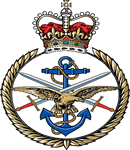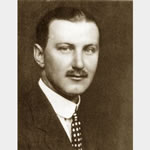Commemorated: | |||
| 1. Memorial: | Basra War Cemetery | Grave V. L. 2. | |
| 2. Book: | The (1921) Masonic Roll of Honour 1914-1918 | Pg.131 | |
| 3. Memorial: | The (1940) Scroll - WW1 Roll of Honour | 6D GQS | |
| 4. Memorial: | Warwickshire Masonic Memorial | Erdington | |
Awards & Titles: | |||
Family :
Son of the Rev. Canon Newton and Francis Jane Newton, of Holmwood, Redditch, Worcs; Husband of Madge (Magaretta) Violet nee Powell, of Chapel Farm, Tilford, Farnham, Surrey. Married in Bombay 25th December 1911.Education & Career :
HORACE GERARD TOWNSEND NEWTON
CAPTAIN H. G. T. NEWTON School House
13™ HUSSARS
HORACE GERARD TOWNSEND NEWTON was the only son of the Reverend
Horace Newton, M.A., of St. John's College, Cambridge, Canon of York,
Rural Dean of Bromsgrove, and formerly Vicar of Redditch, and of Frances
Jane his wife, youngest daughter of Robert Storrs, of Doncaster.
He entered the School in 1899 and left in 1904. He then went to
St. John's College, Cambridge, and, obtaining thence a probationary
Commission in the I3th Hussars, he joined his Regiment in India in the
spring of 1906. He served in India until December, 1914, when he went
to France. In March, 1915, he was promoted Captain.
While he was in France he formed a camp of instruction and was
highly complimented on the work when it was completed. Shortly afterwards
he went with his Regiment to India and thence to Mesopotamia in
the autumn of 1916. He served with the force which recaptured Kut-el-
Amara on February 24th, 1917, and was present at the taking of Baghdad
on March nth. In the cavalry action at Lajj on March 5th, when the
Turks made their only stand between Aziziyeh and the Dialah, Captain
Newton played an important part. Three Squadrons of the Hussars
pursued an enemy convoy, which had at first an escort of 250 rifles, but
received reinforcements all day until in the evening they were estimated at
a Division and twenty guns. The Hussars charged home with the sword
and carried the first enemy position, but the increasing strength of the
Turks prevented the capture of the convoy ; the Squadrons were retired
and advanced on foot as infantry, carrying out these movements with
admirable coolness and discipline. It fell to Captain Newton to extricate
the Regiment from its awkward position, as all his senior Officers had been
killed or wounded. Of the cavalry charge Sir Stanley Maude made special
mention in his Despatches of April loth, 1917, saying, "The cavalry was
hotly engaged with the enemy in this locality throughout the day, and took
some prisoners. A noticeable feature of the day's work was a brilliant
charge made, mounted, by the Hussars straight into the Turkish trenches.
The enemy retreated during the night." In the following month, owing to a breakdown in health, Captain
Newton started for India on sick leave. One effect of his prostration was
that he began to walk in his sleep, and, despite the precautions that were
taken, he fell overboard from a barge on the Tigris, near Kut-el-Amara, on
the night of April 25th, 1917, and was drowned. The current was very
strong, and every effort to save him failed. Age 31.
Captain Newton's body was afterwards found and buried at Ezra's Tomb,
between Amara and Kurna, 220 miles below Kut.
The General Commanding the Brigade wrote :—
"At the fighting at Lajj, where the I3th Hussars had such heavy losses,
he was the senior Officer left of the Squadrons in the most advanced line,
and was in constant communication with me by telephone after the charge.
It was an anxious time for most of us and perhaps especially for me, as I
was commanding the Brigade. Nothing cheered me so much as his cheery
voice. We were momentarily expecting a counter-attack in greatly superior
strength, and our Battery was stricken silent, but he never lost heart, and
I am sure his example went far in putting heart into his men, if such was
necessary. It did me good anyhow. It was also greatly due to him that
at dusk we were able to carry away the Officers and men who were lying
wounded between the lines. Had he been alive now, his name would have
gone in for a Mention in Despatches. He died as many others have died,
but he has not lived in vain."
His Colonel wrote: —
" Quite apart from my personal sorrow, I know how grieved the whole
Regiment will be, for both Officers and men were very fond of him. His
death will be a real loss not only to the Regiment, but to the Service
generally. Believe me, you can cherish his memory with pride."
The Second in Command of the Regiment said that Captain Newton
was in the highest spirits when he said good-bye to him on April 23rd, and
added:—
" I cannot possibly express to you my own feelings or those of every
man and every Officer in the Regiment. We all feel for you from the
bottom of our hearts. It seems very cruel—after all he had gone through
—he had done so splendidly and led his Squadron into action time after
time against heavy odds with the utmost gallantry. He commanded the
Regiment, after the Colonel and I had been hit, all through that critical time
at Lajj on March 5th, and having escaped unhurt up to now and having
more than earned his leave—only to meet his death in this dreadfully sad
way. His loss to us is more than I can bear to think of, and what it must be to you I cannot conceive. We all loved him so, it has cast a very dark
shadow on the Regiment, in which he was valued as a good pal and gallant
comrade."
A Major on the Staff of the Division, writing to his own mother, said:—
" Poor Tiger Newton is dead. He walked overboard and fell into the
Tigris on his way to India on leave. He had been rather shaken of late
and had been walking in his sleep. One might easily fall off one of these
river steamers in full consciousness, and this river is so dangerous and the
currents are so strong that the best of swimmers would not have a chance.
It was most awful bad luck. When the I3th Hussars charged at Lajj, the
Colonel, Second in Command, and two out of three Squadron Commanders
were either killed or wounded, and Tiger Newton was the only one that
escaped that day, and he commanded the Regiment and extricated the
remnants in a most creditable manner from an exceedingly dangerous
position. It was such bad luck after coming through all the fighting we
have had. He is a great loss to the I3th Hussars, where he was immensely
popular. He was a splendid character, was greatly esteemed by all who
came in contact with him and exercised great influence in his Regiment."
Letters were received from Officers in the Regiment and other friends
referring to " his outspoken Christian life " and lamenting the loss of their
" best friend " and " one whom everybody loved."
He married, in 1911, Margaretta Violet, younger daughter of John
Powell, of Liverpool, and left one daughter.
Service Life:
Campaigns:
- The First World War 1914-1918, World-wide.
| Unit / Ship / Est.: 13th Hussars |
13th Hussars August 1914 : in Meerut in India, part of the Meerut Cavalry Brigade. Moved with Brigade to France as part of 2nd Indian Cavalry Division, landed Marseilles December 1914. 15 September 1915 : transferred with brigade to 2nd Indian Cavalry Division. July 1916 : moved with Brigade to Mesopotamia and came under orders of 7th Indian Cavalry Brigade. |
| Action : Mesopotamia |
At the outbreak of war the British, together with Indian troops, resolved to protect oil supply in the region by occupying the area around Basra at Abadan. This evolved into a series of campaigns towards Baghdad against the Turkish forces as Mesopotamia (modern Iraq) was part of the Ottoman Empire. Meetings in late 1914 and into 1915 led the Viceroy and Indian government at Simla to reconsider the limited involvement of troops and they decided to order further advances with a view to securing the Shatt-al-Hai, a canal connecting the Tigris and Euphrates river and potentially capturing Baghdad. The British government disagreed and wished to conserve forces for the Western front. The Viceroy was given permission to act as it wished, but told in no uncertain terms that no reinforcements should be expected.
The initial success experienced by the British and Indian forces quickly disintegrated in the face of Ottoman opposition. The Siege of Kut-Al-Amara began on 7th December with the besieging of an 8,000 strong British-Indian garrison in the town of Kut, 100 miles south of Baghdad, by the Ottoman Army. These campaigns produced few tactical benefits, indeed the catastrophic defeat at Kut in 1916 was a major setback. Badhdad was eventually taken in March 1917.
The conditions in Mesopotamia were dreadful. The climate, sickness and disease produced large losses in addition to battle casualties. About as many men died of disease as were killed in action. The Mesopotamia front was part of a strategy hoping for success at lower cost than the Western Front but no decisive victory was achieved.
Detail :
Evening Despatch – 23rd June 1917 - Drowned in the Tigris – "Redditch Officer walks overboard in his sleep – The Rev. Canon Newton, Holmwood, Redditch, has received from authoritative sources particulars relating to the death of his son, Captain Horace Gerard Townsend Newton of the Hussars, who was accidentally drowned in April at Mesopotamia. On the day of his death he cabled home to say that he was on leave and would spend the period of rest in India, the time being too short to come home. On 25 April, at 11 p.m., Captain Newton walked overboard in his sleep. He was seen by a brother officer in the somnambulous state, but was too late to save him. Life buoys were thrown out, and a boat launched, but the captain was not again seen. In years past Captain Newton, was known to walk in his sleep, particularly when suffering from nerve strain."
See also: Family Biography
See also: Rugby School Biography
See also: Remember The Fallen Website
Masonic :
| Type | Lodge Name and No. | Province/District : |
|---|---|---|
| Mother : | Shakespeare No. 284 E.C. | Warwickshire |
| Joined : | Hope No. 413 E.C. | Bengal |
Initiated | Passed | Raised |
14th February 1911 | 7th September 1912 | 5th October 1912 |
Initiated into Shakespeare Lodge recording him as Horace Gerald Newton, but was passed and raised in Hope Lodge No. 413, Meerut, alos joining that lodge in August 1912. He was already based in India at the time of his initiation. Shakespeare Lodge contribution records show "Killed in action 1917".
Source :
The project globally acknowledges the following as sources of information for research across the whole database:
- The Commonwealth War Graves Commission
- The (UK) National Archives
- Ancestry.co.uk - Genealogy, Family Trees & Family History online
- ugle.org.uk - The records of the United Grand Lodge of England including the Library and Museum of Freemasonry
Additional Source:
- Founder Researchers : Paul Masters & Mike McCarthy
- Researcher : Bruce Littley

